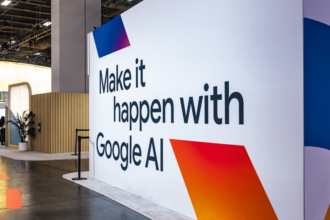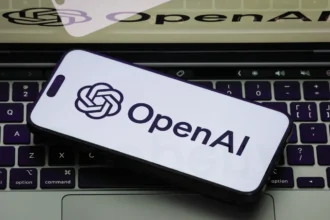Apple is said to be getting ready for a talent and technology infusion from computer vision startup, Prompt AI. The tech giant was in late stage talks on the deal, CNBC reported Friday (Oct. 10), with Prompt leadership telling employees about the pending transaction last week.
Those workers were told that those who didn’t end up joining Apple would receive a diminished salary and they should apply for open positions within the company, according to audio of the meeting reviewed by the network and reported by CNBC.
Executives also informed the staff that Prompt had been approached by other prospective acquirers, including xAI and Neuralink, which are both Elon Musk companies.
Prompt AI, which was founded in 2023 and is based in San Ramon, has a flagship app called Seemour that works with home security cameras to enable them to recognize certain people, pets and objects from a family’s household and alert the homeowner or send text-based description of unusual activity.
Prompt AI Co-Founder and CEO Tete Xiao reportedly told employees in a meeting today that while the app and the company’s tech are not performing poorly, its business model is facing troubles, CNBC says.
The company is shutting the Seemour app and will alert users that their data will be deleted and their privacy protected, executives said.
Apple and Prompt have been contacted by media for comment, though as of this writing they have not responded.
The deal was seen as one more in an increasing number of cases where large tech companies have turned to what are known as “acquihires” to get hold of Artificial Intelligence (AI) expertise, the report said. Other transactions in this realm also range from Meta’s $14.3 billion investment in Scale AI, which brought along with the company founder and other execs, to Google’s $2.4 billion deal for the CEO. of Windsurf and his team.
Elsewhere in Apple AI news, sources reported recently on the company’s attempts to build a ChatGPT-like iPhone app aimed at trying out an overhauled Siri. The tool is, however, limited to internal testing and not available to consumers.
“The reluctance was clear in the iPhone 17’s debut, executives stressing chip performance and design improvements,” PYMNTS wrote.
“AI features like live translation in Messages, FaceTime and visual recognition in Photos each got a brief mention, but most had been previewed months earlier at Apple’s developer conference. The pivot represented a change from the iPhone 16 introduction, when AI was trending before delays derailed deployment.”
Apple’s extended testing status may put it at risk of being late to the party when it comes to shaping consumer expectations—recent reports suggest that Apple’s Siri has been falling out of favor.
“Competitors, however, are amassing massive amounts of consumer data from products already deployed at scale,” PYMNTS said.




















